
– 27-08-2023 –
Gospel Text: Matthew 16:13-20
vs.13 When Jesus came to the region of Caesarea Philippi he put this question to his disciples, “Who do people say the Son of Man is?”
vs.14 And they said, “Some people say he is John the Baptist, some Elijah, and others Jeremiah or one of the prophets.”
vs.15 “But you,” he said “who do you say I am?”
 vs.16 Then Simon Peter spoke up. “You are the Christ,” he said “the Son of the living God.”
vs.16 Then Simon Peter spoke up. “You are the Christ,” he said “the Son of the living God.”
vs.17 Jesus replied, “Simon son of Jonah, you are a happy man! Because it was not flesh and blood that revealed this to you but my Father in heaven.
vs.18 So I now say to you: You are Peter and on this rock I will build my Church. And the gates of the underworld can never hold out against it.
vs.19 I will give you the keys of the kingdom of heaven: whatever you bind on earth shall be considered bound in heaven; whatever you loose on earth shall be considered loosed in heaven.”
vs.20 Then he gave the disciples strict orders not to tell anyone that he was the Christ.
***********************************************************
We have four sets of homily notes to choose from. Please scroll down the page for the desired one.
Michel DeVerteuil : A Holy Ghost Priest, Specialist in Lectio Divina
Thomas O’Loughlin: Professor of Hist Theology, Uni of Nottingham
John Littleton: Director of the Priory Institute Tallaght, D 24
Donal Neary SJ: Editor of The Sacred Heart Messenger
****************************************
Michel DeVerteuil
Lectio Divina with the Sunday Gospels- Year A
www.columba.ie
General Comments
This is a difficult passage for us Catholics to meditate on because in our Church it is nearly always read with an apologetic purpose – to reinforce (or persuade others of) our faith in the primacy of the Pope and the infallibility of his teaching office. The apologetic purpose is important but in meditation we go further and discover in the text a message that will help us grow spiritually and experience the work of God in our lives.
The passage tells the story in three stages:
– verses 13 to 16, the dialogue between Jesus and his disciples leading to Peter’s confession;
– verses 17 to 19, Jesus bequeaths his authority to Peter;
– verse 20, conclusion: Jesus gives them “strict orders” not to tell anyone he is the Christ.
At all three stages we can focus either (a) on Jesus or (b) on those he relates with.
– Verses 13-16: Jesus is proclaimed to be “the Christ, the son of the living God”, but as always in the gospels we should not isolate him from our experience. The passage invites us to recognise in this incident similar experiences in our lives and in the lives of great people we have known – “anointed ones”, the “sons and daughters of the living God”.
So too we need not read the story of Jesus in a static way, as if he is settled in his identity. Once we choose to identify with his experience, we will naturally see him as making a journey to enter into his identity, and Peter as the one who affirms him on the way. This interpretation in no way takes away from Jesus’ divinity. It merely reminds us of the sacredness of the journey to self; we make the journey precisely because we are in the image and likeness of God.
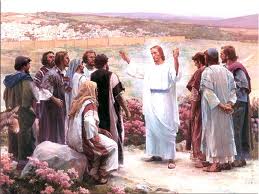
Interpreted in this perspective, the question “who do people say the Son of Man is?” tells us where Jesus is in his life’s journey. Caesarea Philippi is a watershed moment in his life; he feels the need to clarify where he is – has he established himself? Communicated his message? Been who he is called to be? As always happens to us if we are honest in our self questioning as Jesus is, he is blessed to have someone like Peter, a “disciple”, affirm him as “the Christ, the son of the living God”.
Peter on the other hand is at the stage where he knows he must take a stand on the master he is following. He must answer from the truth of himself, not “who do people say he is?” but “who do I say he is?”. We celebrate the person (it may be an event or God himself in a moment of prayer) who brings us to the point where we have to affirm the “lordship” of Jesus or someone (a cause) in which he is incarnate.
– Verses 17-20: Here is another watershed moment in Jesus’ life, when he becomes conscious that he has found someone to whom he can hand over his mission. We experience similar moments when, as parents, teachers, friends, leaders of political parties or social movements, we realise with great joy that someone is going to carry on our work. Every aspect of Jesus’ words is significant:
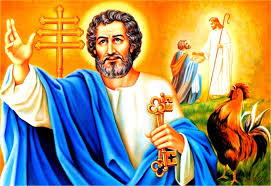 – He feels deep humility, an overwhelming sense of gratitude that this is the work not of flesh and blood but of God.
– He feels deep humility, an overwhelming sense of gratitude that this is the work not of flesh and blood but of God.
– He feels unbounded confidence in the future. This person is a sure foundation, a “rock”, and “the gates of the underworld” will not “hold out” against him or her.
– He is very happy to hand over his authority, to give this person “the keys of the kingdom”. The authority is practical – it includes both “binding and loosing.”
– He does this handing over with confidence too; whatever decision the “disciple” takes will be “considered” ratified “in heaven”.
Looking back on similar moments in our lives we may find that the “Peter” we celebrated later disappointed us – lost the vision, betrayed us, turned out to be corrupt. The subsequent disappointment does not however take away from the sacredness of the original experience.
It is a wonderful moment for Peter too. He experiences himself as receiving a mandate to bind and to loose with the confidence that whichever decision he takes will be ratified in heaven.
– Verse 20: Here again we can focus on Jesus. He represents us when we realise that the truth of what we are about is something we can share only with our confidantes, not with everyone.
For the disciples it is the moment when they know with deep conviction (“gave them strict orders”) that they cannot reveal the revolutionary character of their leader or cause.
Scripture Prayer Reflection
“To have humility is to experience reality not in relation to ourselves but in its sacred independence.” …Dag Hammarskjold
Lord, many people today are drifting through life, unsure of their identity.
Remind them that your son Jesus too had to make the journey to being himself.
Send them humble companions like Simon Peter who will see them in their truth,
not replicas of anyone else, but your sons and daughters,
anointed by you for a particular mission in the world.
 Lord, there was a time when we felt discouraged, wondering if our work was in vain.
Lord, there was a time when we felt discouraged, wondering if our work was in vain.
Then we came to a place, our own Caesarea Philippi,
and we found that there were people who understood what we were about;
we knew at that moment that the cause we had given our lives for
was now on a solid foundation,
the forces of evil would not hold out against it,
and we could hand it over with confidence to our successors.
Lord, every once in a way you send us young people who are special to us
their teachers, parents or community leaders.
Whereas others have only a vague idea of the message we are trying to convey, they understand it perfectly.
We experience them as a gift,
we know that it was not our hard work that revealed things to them;
it was you yourself who taught them.
Without being able to prove it, we know for certain that they will never fail us.
Thank you Lord, for these blessed ones.
“Under the pontificate of John Paul II the Church has discovered itself as a companion in humanity’s pilgrimage, no longer a fortress under siege.“ …Cardinal Koenig
Lord, we thank you that Jesus saw himself as a companion of his disciples.
He entered into dialogue with them,
asking them to share with him how they saw his mission.
Naturally they were surprised;
they were not accustomed to teachers who would relate to them like this,
and so they did not speak from their own conviction
but repeated what the learned people of the time were saying.
Jesus wanted them to share what was deep within them
because he knew that when people do that
it is not merely flesh and blood that is at work in them but you yourself.
And so their little community grew together,
built on the rock of trust and sharing a foundation so solid
that the gates of the underworld could never hold out against it.
“Slaves wrested God from their captors.” …Derek Walcott, Caribbean poet reflecting on a Third World culture finding itself.
Lord, we thank you for sending us great artists who make us aware
that we have allowed others to keep us bound;
now we are set free and no power on earth can bind us again.
“Hope is the thing with feathers that perches in the soul
And sings the tune without the words and never stops at all.” …Emily Dickinson
Lord, we thank you for the wonderful gift of the sacrament of reconciliation.
We remember the times when the priest told us
that we were free from the bondage of our sins
and we knew that what was loosed there in the confessional
was loosed in your presence in heaven.
Lord, forgive us Church workers that we like to draw attention to ourselves, arrogating to ourselves sacred titles like “prophet” or “anointed one”.
Help us to be humble like Jesus when he gave his disciples strict orders
not to tell anyone that he was the Christ.
*********************************************************
Thomas O’Loughlin
Liturgical Resources for the Year of Matthew
www.columba.ie
Introduction to the Celebration
We have gathered here as the disciples of Jesus, we declare that he is present among us, we are about to share his table. But who is the One we follow? That is the question that is posed in today’s gospel, and we hear Peter’s resounding answer: ‘You are the Christ, the Son of the living God.‘ Let us spend a moment in prayer and reflection, asking the Father to reveal to us now a deeper awareness of who it is in whose name we have assembled and into whose presence we have come.
Homily Notes
There are, at least, three different directions that a homily based on today’s gospel can go down:
First, the confession of who Jesus is, and then the homily focuses on christology;
Second, who/what the church is that was founded on the apostles, and then the homily focuses on ecclesiology; or
Third, the focus is on Peter and / or the keys, and the memory of Rome and the papacy, and then the homily will have an apologetics or ecumenics focus because this Petrine ministry is an aspect of the church that is not just disputed with the churches of the Reformation, but with the ancient churches of the East (e.g. the Greeks and the Syrians) and of Africa (e.g. the Copts and the Ethiopians).
1. The problem is that all three of these themes have to be given attention in today’s liturgy; but if you try to give all equal prominence, then you overload the whole system. More pointedly, if in a homily of seven minutes, or less, you try to cover all of them, then you will probably fail to communicate anyone of them adequately. The nature of human communications decrees that you choose one of the three possible directions and focus on it in the homily, and then let the rest of the liturgy draw attention to the other themes (e.g. The Preface of the Apostles can draw attention to the apostolic nature of the church).
2. I am opting in the rest of these notes for the theme of christology. My reason for this choice is that there are likely to be many people in an average congregation with a defective understanding of who we believe Jesus to be, and sound doctrine on this core of Christian faith (as this gospel itself makes clear) is the presupposition of concerns with ecclesiology or ecumenics.
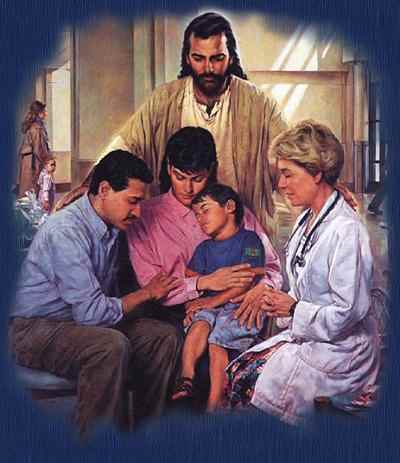 3. Let us begin, just as today’s gospel does, with a question. Who is Jesus? There are, of course, a raft of answers: some from those who dismiss him, some from those who are vaguely interested in him or in religion, and some from those who have encountered his message and have followed him in one way or another. It is this third group that are our concern. Jesus did not ask disciples an open question (e.g. what do you think people make of me? To which they might have replied: ‘Well, the Romans think you are just another Jewish hot head; while the priests in the temple think you are another heretic; while the followers think you are great!, but rather he asked them about who the followers – that is those who knew him as the Son of Man – thought he was. This is a question about the integrity of our belief and our preaching as his church.
3. Let us begin, just as today’s gospel does, with a question. Who is Jesus? There are, of course, a raft of answers: some from those who dismiss him, some from those who are vaguely interested in him or in religion, and some from those who have encountered his message and have followed him in one way or another. It is this third group that are our concern. Jesus did not ask disciples an open question (e.g. what do you think people make of me? To which they might have replied: ‘Well, the Romans think you are just another Jewish hot head; while the priests in the temple think you are another heretic; while the followers think you are great!, but rather he asked them about who the followers – that is those who knew him as the Son of Man – thought he was. This is a question about the integrity of our belief and our preaching as his church.
4. The range of opinions (John the Baptist, Elijah, a prophet) held by Jesus’s followers among those who first heard the gospel may be far closer to ways of viewing Jesus held in the average congregation today than you would expect!
5. The first position is that Jesus is another John the Baptist. Jesus was influenced by John; but while both proclaimed the closeness of the kingdom, they presented very different visions. John preached repentance, for the coming of the kingdom would be the great crunch when God would mete out his justice. Jesus came saying the kingdom was at hand when the Father would mete our forgiveness and mercy, and inaugurate the reign of peace and love. Jesus ate with prostitutes and tax collectors, and was criticised for this (Mt 9:10-11); John spent his time telling these people about the wickedness of their lives and warning them of the future retribution. Many then, and now, would prefer such a finger wagging, ‘Tell it to them straight,’ type of religious leader than the incarnation of the gentleness and forgiveness that is the Lord.
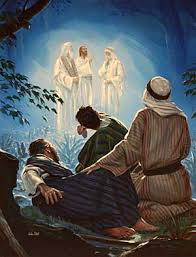 6. The second position is that Jesus is another Elijah. When we hear words like ‘lord’ we thing of a mighty leader who can march his men on to victory over opponents. If God is going to save his people, we sometimes imagine, the best way to do it would be with a great wonder-working person who can intervene, stop things happening, and get things moving. That was exactly how Elijah was remembered. When he took on the prophets of Baal, they were roundly shown to be frauds through God’s power, gathered up and slaughtered’ and not one escaped’ (1 Kgs 18). This is a powerful type of saviour whom people must respect, and who shows who is really in charge. And, deep down, many of us would like Jesus, just now and then, to show the world just who is in charge. You may think this is not so; but consider the fact that the legend of St Patrick is based on him being another Elijah; while many private revelations (St Margaret Mary or Fatima) have elements of John the Baptist and Elijah bound up in them. But just as Matthew presents Jesus as very different to John, so also he presents him as very different to Elijah; at the moment of his arrest Jesus asks: ‘Do you think that I cannot appeal to my Father, and he will at once send me more than twelve legions of angels?’ Those who like an Elijah-style Christ would have had the twelve squadrons ‘buzz’ the scene, even if they do not go all the way and call in an airstrike!
6. The second position is that Jesus is another Elijah. When we hear words like ‘lord’ we thing of a mighty leader who can march his men on to victory over opponents. If God is going to save his people, we sometimes imagine, the best way to do it would be with a great wonder-working person who can intervene, stop things happening, and get things moving. That was exactly how Elijah was remembered. When he took on the prophets of Baal, they were roundly shown to be frauds through God’s power, gathered up and slaughtered’ and not one escaped’ (1 Kgs 18). This is a powerful type of saviour whom people must respect, and who shows who is really in charge. And, deep down, many of us would like Jesus, just now and then, to show the world just who is in charge. You may think this is not so; but consider the fact that the legend of St Patrick is based on him being another Elijah; while many private revelations (St Margaret Mary or Fatima) have elements of John the Baptist and Elijah bound up in them. But just as Matthew presents Jesus as very different to John, so also he presents him as very different to Elijah; at the moment of his arrest Jesus asks: ‘Do you think that I cannot appeal to my Father, and he will at once send me more than twelve legions of angels?’ Those who like an Elijah-style Christ would have had the twelve squadrons ‘buzz’ the scene, even if they do not go all the way and call in an airstrike!
7. The third position is that Jesus is just one more wise religious leader who calls or recalls people to the faith they already held. Jesus’s work was not just a ‘re-heating’ of the religious wisdom, but the establishment of a new community, a new covenant, a people intimate with the Father. Jesus is the ‘new wine’ (Mt 9:17) who has established the new relationship between us and the Father, and between us as sisters and brother.
8. This gentle, forgiving Christ offering us adoption by our loving Fatherm- so unlike the expectations of religious people then or now – is revealed to us, not by flesh and blood, but by the Father himself.
***********************************************************
John Litteton
Journeying through the Year of Matthew
www.Columba.ie
Gospel Reflection
The people who knew Jesus, including some of his disciples, believed him to be a great prophet, such as John the Baptist, Elijah, Jeremiah or one of the other prophets. But, when asked by Jesus to offer an opinion about his identity, Peter said: ‘You are the Christ, the Son of the living God’ (Mt 16:16).
Jesus made clear that this was a particular grace from God which allowed Peter, from among all the apostles and disciples, to discern the true identity of Jesus. In this way, Peter announced his belief that Jesus was the promised Messiah who had come to deliver God’s people from the bondage of sin. Jesus was much more than a prophet, and Peter was divinely inspired to acknowledge this truth.
The public manifestation of Peter’s faith in Jesus as the Christ, the Anointed One, was immediately rewarded by Christ who wanted Peter to know two facts.
First, he had been especially blessed by God in being given this knowledge.
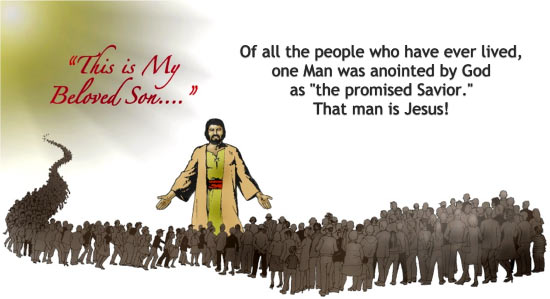
Secondly, Peter was given a singularly important role in the infant Church: ‘You are Peter, and on this rock I will build my Church. And the gates of the underworld can never hold out against it. I will give you the keys of the kingdom of heaven:
whatever you bind on earth shall be considered bound in heaven; whatever you loose on earth shall be considered loosed in heaven’
(Mt 16:18-19).
Thus we find an instance of the Old Testament custom of changing names at a pivotal moment in the salvation history of the Chosen People. For example, in the case of Abraham, we read: ‘You shall no longer be called Abram; your name shall be Abraham, for I make you father of a multitude of nations’ (Gen 17:5). Similarly, regarding Jacob, we read: ‘Your name shall no longer be Jacob, but Israel’ (Gen 32:28).
Jesus changed Simon’s name to Peter (meaning rock), explaining that it would be upon the rock of Peter that the Church would be built. Just as the Father had given Peter special insight into the identity of Jesus, so Christ now delegated his own authority to Peter and his successors.
Interestingly, after giving authority to Peter, Jesus commanded his disciples to tell no one that he was the Christ. This command has been much debated because in other places in the gospels Jesus did not deny that he was the Messiah, most famously when speaking with the Samaritan woman at the well. When she mentioned the Messiah, Jesus replied: I who am speaking to you, I am he’ (In 4:25).
There are several reasons why Jesus instructed Peter and the others to remain silent about his identity, not least to protect them from harm because, as subsequent verses indicate, they had not yet been prepared by Jesus for the persecutions to come. However, the important lesson for us in these verses is that here we are reminded of the supernatural origins of the papacy. Peter and those popes who followed him have their crucial leadership role in the Church by divine mandate.
Therefore, when the Pope speaks definitively (that is, finally) on matters of faith and morality, teaching something that must be held by all the faithful, Catholics are bound to obey and adhere to that teaching. This definite teaching need not always come in the form of a public pronouncement, but applies whenever the Pope is repeating teachings that have always been accepted by the Church from the earliest days. The Pope’s authority is limited, however, in that his office is one of guardianship. He is to guard, promote and teach the Christian faith but he is not authorised to add anything to it.
It is difficult being the Pope in the contemporary world when the teaching of Christ and the moral law often challenge modern fashions and trends. So let us pray for the Pope who is charged with upholding and defending the Church’s teachings.
For meditation
But you, who do you say I am? (Mt 16:15)
******************************************************
Fr Donal Neary, S.J
Gospel Reflections for the Year of Matthew
www.messenger.ie/bookshop/
Nothing but Jesus
We all need some statements like Peter’s that give a rock and a meaning to life, It gives us a clue of where we belong at deeper levels. We all need statements that express our faith in God. For Peter it was his faith in Jesus, the son of God. This would keep him going all of his life, even at times of unfaithfulness and danger. He could never forget that he had said, ‘you are the Christ, the son of the living God’.
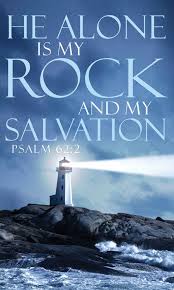 We might wonder who or what is a living God for us? Where we might put our basic trust? What is it that, if taken away, we would be lost without? We can give our lives to family, country, a political party, money. Some of these are worth our trust and some not so much.
We might wonder who or what is a living God for us? Where we might put our basic trust? What is it that, if taken away, we would be lost without? We can give our lives to family, country, a political party, money. Some of these are worth our trust and some not so much.
We need the rock that Peter found in Jesus. He was called rock only because of his relationship with Jesus Christ, the one who calls forth our faith and love and gives our lives a huge meaning.
If s not that we have nothing but Jesus – if s that we can integrate all that is important in life within our trust in him. It is God who reveals Jesus to us.
We want to give this to our younger people ~ a rock they can stand on in life, which nothing can demolish. This is Jesus, and in him all is created.
Recall strong convictions in your life.
Ask that they may he strengthened.
Lord, be my rock, my strongholdf my safety.
*****************************